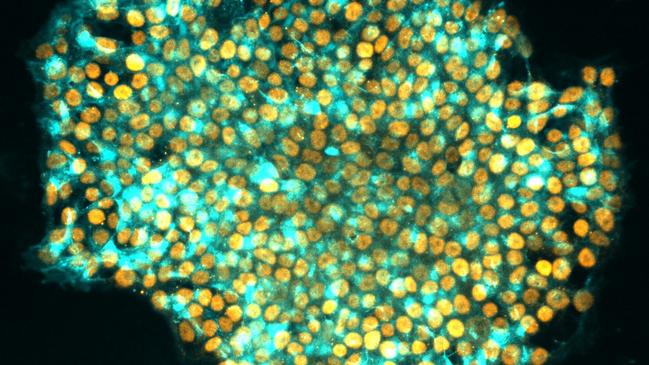Gene ‘memory loss’ may lead to treatment
Treatment for Parkinson’s, diabetes and cancer could be significantly advanced after scientists discovered a way to wipe the ‘genetic memory’ of artificially created embryonic-like stem cells.

Treatment for chronic diseases including Parkinson’s, diabetes and cancer could be significantly advanced after scientists discovered a way to wipe the “genetic memory” of artificially created embryonic-like stem cells.
About 15 years ago, scientists made a major breakthrough when they pioneered a method in which human skin cells or blood cells could be artificially reprogrammed to closely resemble human embryonic stem cells. These cells became known as induced pluripotent stem cells.
The advance caused great excitement in the scientific community as research using human stem cells was associated with significant ethical challenges.
It also guaranteed an unlimited supply of the human-like stem cells, and became the foundation for a new research methods in regenerative medicine.
But it soon became apparent that the cells came with their own “baggage” when Australian professors Ryan Lister and Jose Polo discovered that the iPSCs displayed epigenetic and functional differences – effectively retaining some of the genetic memory of being human cells.
Now in a paper published in the journal Nature, Professor Polo, from Monash University and the University of Adelaide, and Professor Lister, from the Harry Perkins Institute of Medical Research and the University of Western Australia, pinpointed when epigenetic “aberrations” develop in iPSCs during reprogramming. Using that knowledge, they developed a reprogramming strategy that emulates human processes. In so doing, they were able to wipe the genetic memory of the induced stem cells, producing reprogrammed cells that are molecularly and functionally more similar to human stem cells.
Their method has been dubbed “TNT reprogramming”.
“We foresee TNT reprogramming becoming a new standard for biomedical and therapeutic applications and providing a novel system for studying epigenetic memory,” the paper says.
The discovery has implications in particular for cancer immunotherapy drug treatments which use induced stem cells and some cutting-edge trials in Parkinson’s disease in which reprogrammed dopaminergic neurons are being introduced into the brains of sufferers as a potential treatment.
The scientists said that having induced stem cells available which do not run the risk of having genes switched on when they shouldn’t will transform research into diseases and treatments.
“We believe our method which can remove these vestiges of the original cells could improve the fidelity or the accuracy in which we are able to make cells that better resemble the cells in the human body.”




To join the conversation, please log in. Don't have an account? Register
Join the conversation, you are commenting as Logout